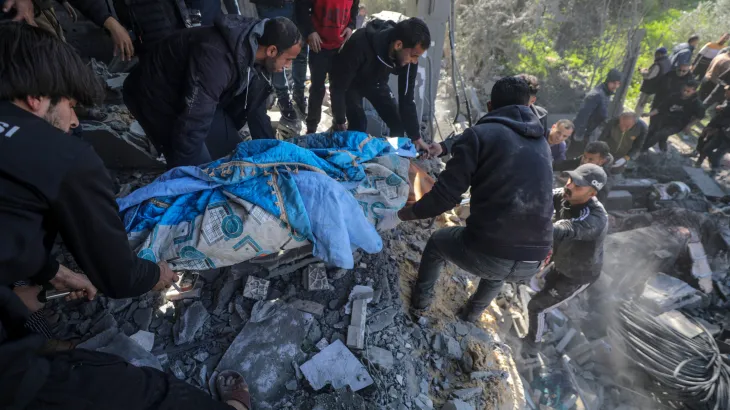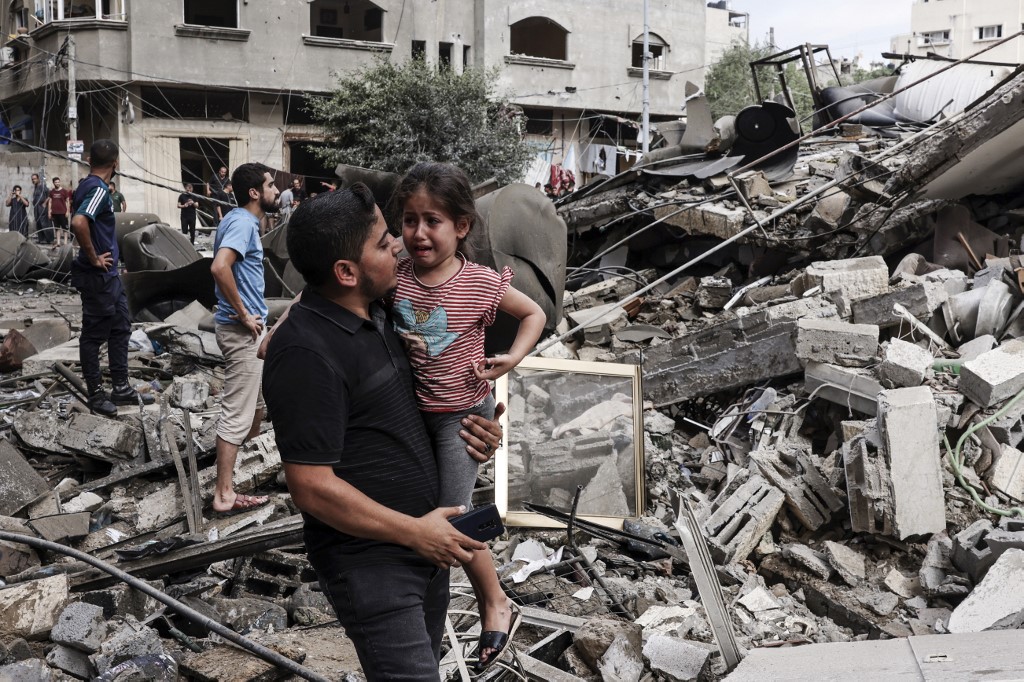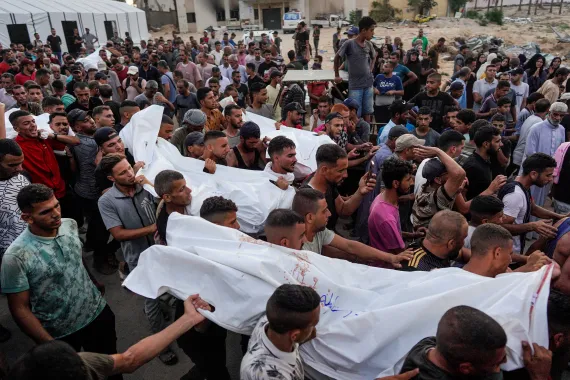At least 23 Palestinians were reported killed by the Israeli military in northern Gaza early Tuesday, according to Gaza Civil Defense officials. This violence comes as the region continues to endure a humanitarian crisis exacerbated by the ongoing conflict that has been raging since October 7 of last year. Mahmoud Basal, spokesperson for Gaza’s Civil Defense, stated that among the casualties, at least 12 individuals were killed while attempting to escape the Mashrou’ neighborhood in Beit Lahiya. Residents indicated that they had received flyers from the Israel Defense Forces (IDF) urging them to evacuate the area. However, the authenticity of these flyers could not be independently verified, and attempts to reach the IDF for comments on this matter were made.
In Beit Lahiya, further violence was reported, with five fatalities occurring at the Khalifa Bin Zayed school. Additionally, at the Kamal Adwan Hospital in Jabalya, at least one woman lost her life due to artillery fire targeting the entrance of the medical facility, according to Basal’s statements. The violence extended to Gaza City, where an Israeli airstrike resulted in at least five deaths at the Al-Dawla intersection. The toll of injuries continues to climb, with the Gaza Health Ministry reporting that over 100,000 Palestinians have been wounded since the onset of hostilities last year.

The Health Ministry’s latest figures reveal that 487 individuals were injured in the past 48 hours alone, raising the total number of wounded to approximately 100,282. This statistic reflects a dire situation where about one in every 22 residents in the enclave has sustained injuries since the escalation of conflict began. Furthermore, the ministry reported that at least 42,718 Palestinians have died since the start of the hostilities.
The humanitarian crisis in Gaza has deepened as the conflict intensifies, leaving over 2.2 million residents struggling to meet basic needs. In particular, the situation in the northern strip is desperate, with Palestinians in cities such as Beit Lahiya, Jabalya, and Beit Hanoun recounting horrifying scenes as violence escalates. Basal reported that nearly 600 individuals have died in the northern region since the Israeli Defense Forces (IDF) launched a renewed offensive on October 5, purportedly targeting Hamas strongholds.
Amid the ongoing violence, residents have voiced their struggles to find adequate food supplies for their families, as the Israeli siege has severely restricted essential resources in the area. Local medical personnel, especially at facilities like Kamal Adwan Hospital, have expressed grave concerns about their ability to care for the wounded. They are facing critical shortages of fuel, food, and medical supplies, which are essential for treating patients and keeping healthcare services operational.

The severe lack of aid in northern Gaza has hindered efforts to treat injured individuals and manage the increasing number of deceased. Philippe Lazzarini, the head of the United Nations agency for Palestine refugees, highlighted the impact of these shortages on recovery efforts and burial processes. The continued siege and military actions have created a situation where the humanitarian needs of the population are vastly outpacing the available resources.
As violence rages on, international organizations and humanitarian agencies are increasingly alarmed by the deteriorating conditions in Gaza. With the region’s infrastructure heavily damaged and medical facilities overwhelmed, the need for urgent aid has never been more critical. The international community has called for immediate action to alleviate the suffering of the civilians trapped in the crossfire.
The ongoing conflict has not only claimed lives but has also left countless families devastated and in despair. The stories of those affected underscore the urgent need for a sustainable resolution to the conflict and for humanitarian access to be granted to provide relief to those in desperate need. As the situation develops, both local and international stakeholders continue to grapple with the profound implications of the violence and the humanitarian crisis in Gaza.
With the conflict showing no signs of abating, the plight of Palestinians remains a pressing global issue. The international community’s response and the actions taken in the coming days will be critical in shaping the future of those caught in the cycle of violence. It is imperative that efforts are made not only to address immediate needs but also to find long-term solutions that can foster peace and stability in the region.




